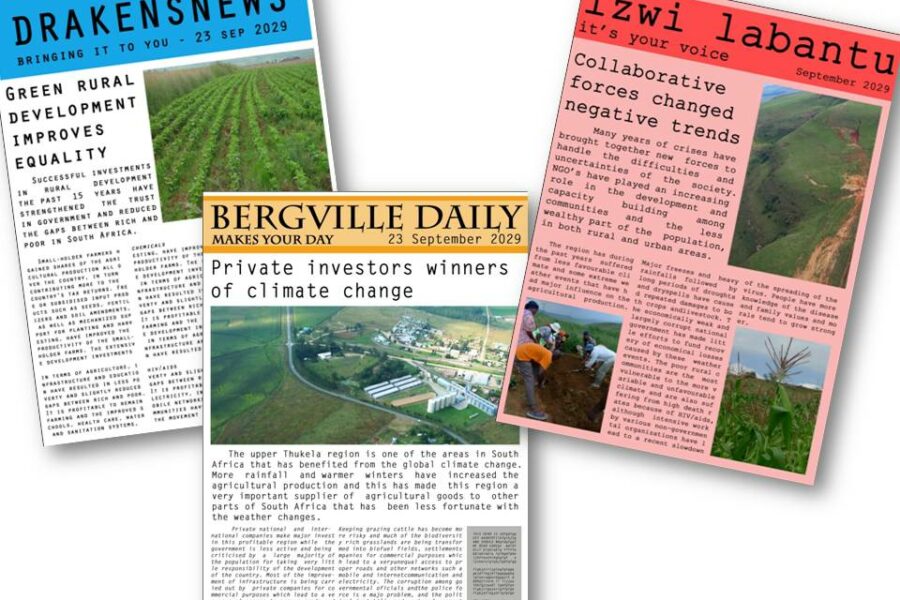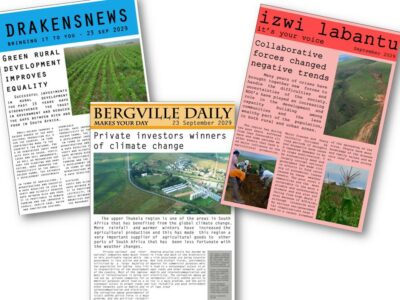The main objective of this study was to develop a set of qualitative scenarios in the Upper Thukela region in KwaZulu-Natal, South Africa, in the planning phase of an extended ecosystem service assessment. The second objective was to analyze if scenario planning can be a useful tool to identify relevant ecosystem services at the initial phase of an ecosystem services assessment. Together with local and regional stakeholders, we developed three scenarios for the future of the region. The social-ecological challenges in the area are inequity, poverty, environmental degradation and climate change. All three scenarios showed inequitable outcomes between the user groups in this social-ecological system.
The scenario development process triggered important discussions with local and regional stakeholders about current key issues, helping to more correctly assess changes in the future.
It helped to establish contacts between researchers and local stakeholders and provided a platform for sharing ideas and expectations.
The scenarios were made in: 2010
The scenarios look out to: 2030

